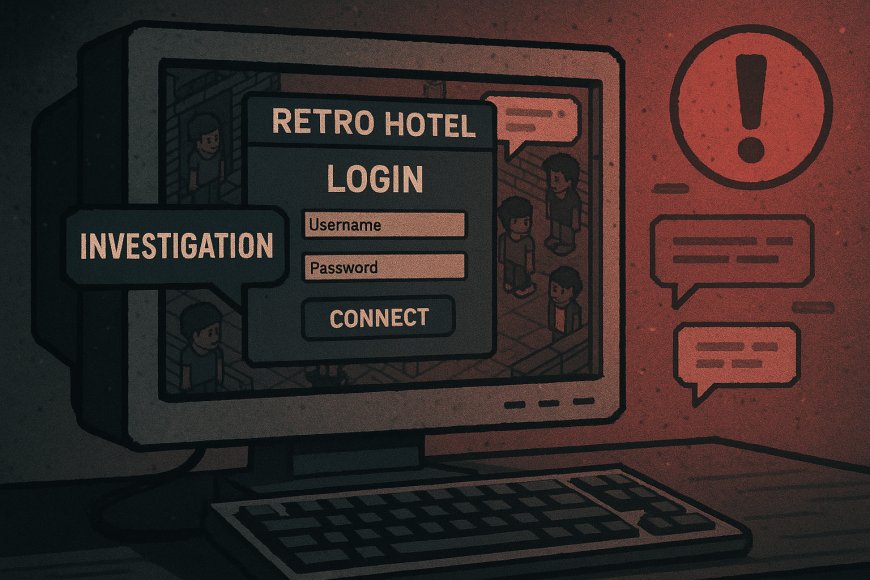Retro Hotels: Between Nostalgia and Negligence
A deep dive into retro hotel games. Explores legal risks, child safety concerns, and growing security issues behind nostalgic online platforms.

In a digital world dominated by massive online platforms, a quieter ecosystem continues to thrive: retro hotels. These fan-operated recreations of early internet games like Habbo Hotel and Club Penguin offer players a nostalgic experience.
However, a deeper look reveals a divided reality. Some projects focus on safety and community. Others tread dangerously close to legal and ethical collapse.
A Safe Return to the Past
Several retro hotel developers have taken a responsible approach. Building platforms from the ground up, these projects often avoid stolen source code and implement modern web standards like HTTPS, database encryption, and active moderation systems.
In many cases, their teams are transparent about operations and avoid monetization practices that exploit users.
These communities typically remain small and passion-driven. Their goal is preservation through creativity, not profit. Developers often invest personal time and resources to provide a safer online space, particularly for younger players.
Security Risks and Unregulated Spaces
Despite these examples of best practices, the broader retro hotel scene remains fraught with risk.
Many sites still run on outdated CMS platforms such as Phoenix or RevCMS. These codebases were leaked more than a decade ago. They often lack even the most basic security features like SSL, making user data — including login credentials — vulnerable to interception by anyone with minimal technical knowledge.
Database protection is another major weak point. Many retro hotels do not properly secure their SQL databases, exposing email addresses, passwords (often unhashed), chat logs, and IP addresses. Some sites even store passwords in plain text.
Backend access is rarely locked down. Unsecured admin panels, poorly set permissions, and hardcoded credentials have led to several known leaks and breaches. Some servers even leave FTP or control panel access public by mistake.
Moderation, if it exists at all, is inconsistent or cosmetic. Open chat rooms allow unrestricted communication, including between minors and unknown adults. Grooming cases have been reported in several communities.
In extreme cases, some operators knowingly allow this behavior to drive traffic or increase donations.
Many platforms also encourage users to “donate” to gain special access — admin rights, badges, or virtual currency — despite blatantly violating platform ownership rights and exposing users to further exploitation.
Several high-profile shutdowns have already occurred. Most notably, Club Penguin Rewritten was taken offline by authorities in 2022 following concerns over user safety and potential criminal misuse.
Legal Ramifications Remain Clear
Using copyrighted assets without proper licensing remains a direct violation of intellectual property law. This includes art, sound files, branding, and even layout structures.
The argument of “digital preservation” offers no legal cover when entire games are being cloned and redistributed.
Companies like Sulake (Habbo) and Disney (Club Penguin) have issued takedowns and legal threats to unauthorized platforms. These efforts often escalate when child safety or monetization is involved.
Conclusion: Two Futures
The retro hotel community is split.
On one side are dedicated teams striving to create safe, community-focused platforms. On the other, operators running vulnerable, unlicensed, and unmoderated clones that jeopardize both user safety and the legal standing of everyone involved.
Retro hotels can offer meaningful online experiences — but only if safety, transparency, and legality come first.
Anything less risks repeating the worst failures of the past under the guise of nostalgia.
What's Your Reaction?
 Like
1
Like
1
 Dislike
0
Dislike
0
 Love
0
Love
0
 Funny
0
Funny
0
 Angry
0
Angry
0
 Sad
0
Sad
0
 Wow
0
Wow
0


















